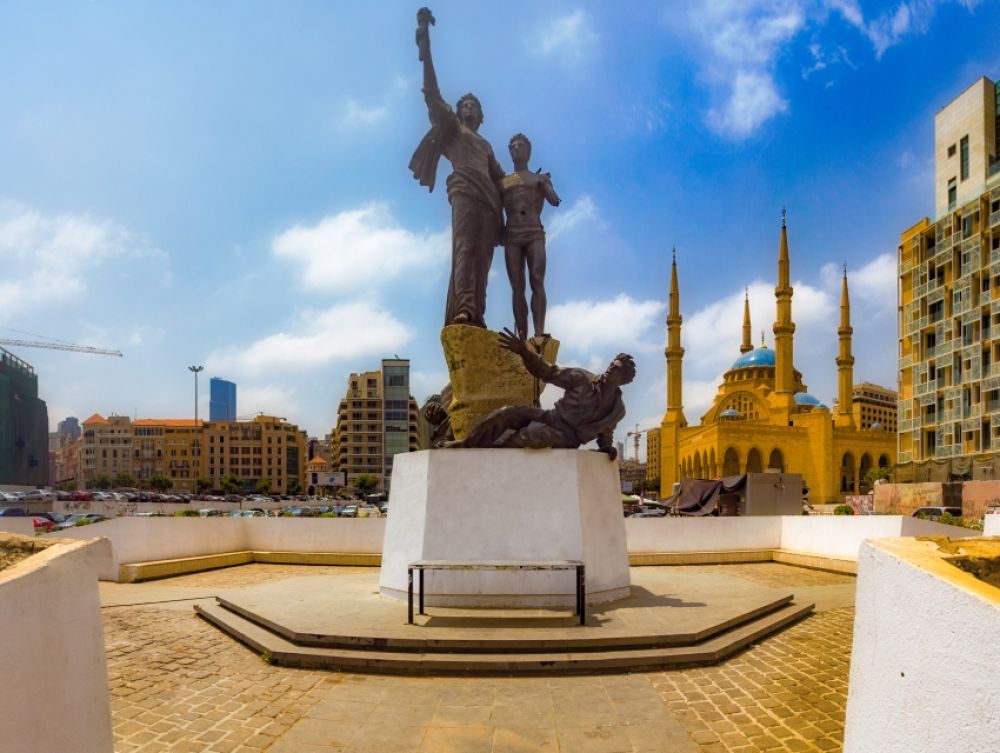

Located in the heart of Beirut's Central District, Martyrs' Square is a historic and symbolic landmark for the Lebanese people. The square has been a focal point for commercial and social gatherings, as well as political demonstrations, for over a century.
The history of Martyrs' Square stretches back to the end of the 19th century when it was known as "Place des Canons." Over the years, the square has witnessed the ebb and flow of Beirut's fortunes and has been a silent spectator to pivotal events in Lebanese history.
It was rechristened "Martyrs' Square" in memory of Lebanese nationalists who were executed by Ottoman authorities during World War I. A landmark bronze statue was erected in 1960 to honor these martyrs, adding both cultural significance and a sense of patriotic pride to the square.
The Lebanese Civil War (1975-1990) had a profound impact on Martyrs' Square, leaving it on the dividing "Green Line" between the Christian and Muslim sections of the city. Post-war reconstruction efforts, spearheaded by the government and private companies, focused on revitalizing Beirut's Central District, bringing Martyrs' Square back to its former glory as a vibrant center of social and economic activity.
In recent times, tourism trends in Beirut have shifted towards heritage and cultural experiences. Visitors to Martyrs' Square are often found soaking up the historical narrative, engaging in guided tours, and participating in cultural events. The surrounding area has seen a resurgence of cafes, art galleries, and boutiques, reflecting both the traditional and modern aspects of Lebanese culture.
Sustainable tourism has also become a focus, with an emphasis on preserving the historic fabric of the square while accommodating tourists. Efforts are being made to improve pedestrian spaces and public transport options to reduce the environmental impact of tourism.
Martyrs' Square remains a popular assembly point for demonstrations. The square played a significant role during the 2005 Cedar Revolution and, more recently, the 2019-2020 Lebanese protests against political corruption and economic mismanagement. These events have further cemented Martyrs' Square as a symbol of Lebanon's continuous struggle for freedom and justice.
Travelers to Martyrs' Square can witness the rich tapestry of Lebanese history and culture. The site serves not only as a reminder of the past but also as a beacon of collective aspirations for the future. Tourists are encouraged to visit the nearby Beirut Souks for shopping, the Solidere area for modern urban charm, and the various religious sites that showcase Lebanon's religious diversity.